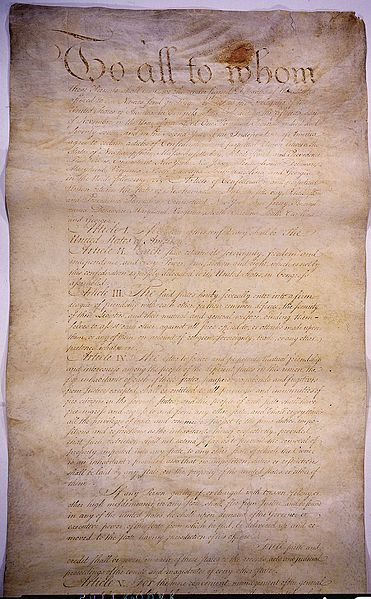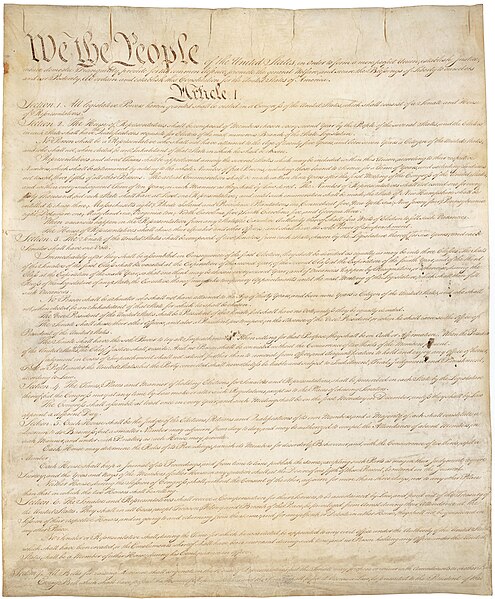Anti-Federalism was a late-18th-century political movement that opposed the creation of a stronger U.S. federal government and which later opposed the ratification of the 1787 Constitution. The previous constitution, called the Articles of Confederation and Perpetual Union, gave state governments more authority. Led by Patrick Henry of Virginia, Anti-Federalists worried, among other things, that the position of president, then a novelty, might evolve into a monarchy. Though the Constitution was ratified and supplanted the Articles of Confederation, Anti-Federalist influence helped lead to the passage of the Bill of Rights.
The Articles of Confederation, predecessor to the U.S. Constitution and drafted from Anti-Federalist principles
History of the United States Constitution
The United States Constitution has served as the supreme law of the United States since taking effect in 1789. The document was written at the 1787 Philadelphia Convention and was ratified through a series of state conventions held in 1787 and 1788. Since 1789, the Constitution has been amended twenty-seven times; particularly important amendments include the ten amendments of the United States Bill of Rights and the three Reconstruction Amendments.
Page one of the original copy of the United States Constitution
Independence Hall, south wing. Philadelphia
Washington as Convention President
George Washington Convention President





